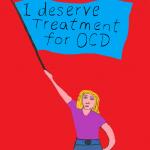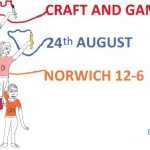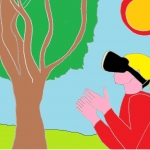Stigma and discrimination: let’s put an end to it
Imagine having had the best summer of your life, received the results necessary to progress onto university, and met a new partner while spending the majority of days lying in the sun. It was the perfect summer and everything was looking positive; I couldn’t wait to move into my new flat. I’d worked so hard to get to this point; although I wasn’t necessarily the most gifted academically, I knew I could achieve.
What I had not expected was to feel the emotions that engulfed me when I finally branched out on my own. I now firmly believe that your teenage years are grossly underestimated and are a really challenging time in anybody’s life. It is a time in which there are huge social pressures, and university only adds to this. For those introverts out there this can fast become overwhelming. I think that University also demands a certain level of confidence and belief, those that have it prosper, while others just try to blend in with the masses abiding by social norms.
See what a lot of people don’t know is that when I moved into my first flat I was really happy, I made the place my own and settled in. Yeah, the first half of the year was great but things really started to decline after this. I was fine when my partner came and visited but when she wasn’t with me I would often sit in my room at night and could not help but cry, and still to this day I don’t know whether my flat mates could hear. Approaching these subjects and becoming benign is rather difficult, instead retaining a certain ‘macho’ exterior is just easier. I mean when somebody asks another person how they are, it is common practice and polite to respond with “I’m fine” or “I’m good” etc. People don’t really want to have to listen to all of your issues do they? I think the best way to answer this is that those closest to you especially can surprise you.
In 2009 I was diagnosed with Obsessive Compulsive Disorder (OCD) and Depression. I had reached the point where I was facing hours and hours of rituals a day; it seemed to be my coping mechanism for the necessity to achieve, to be the best I could be. It was on one particular morning in which I ritualised to the point of physical and emotional exhaustion; I just could no longer cope on my own. I managed to pluck up the courage to see my GP, who then referred me which led to my diagnosis. However, it wasn’t until the third year that I received support at university and it took me four years to tell those closest to me. This is though as you may be aware so commonly the story and it is why there are so many people who are suffering in silence. They may not feel that there is anybody to talk or turn to.
That then leads to the reason I am writing this. The reason being that I want to inform people that once you can accept that you are suffering from mental health difficulties you can really start to help yourself and improve your life. If you confide in those closest to you they may surprise you, they certainly did for me. The response that I received could not have been better, it far surpassed my expectations. Added to this the response I had from my best friend just confirmed what a good friend he is. As a result of this I am now trying to share my story in an attempt to raise awareness. I am also involved with charities like OCD Action, which is a wonderful charity and does great work for the OCD community. I believe we should all work together to help end stigma and discrimination. My name is Jamie Fletcher and I have OCD & Depression and people do care.







